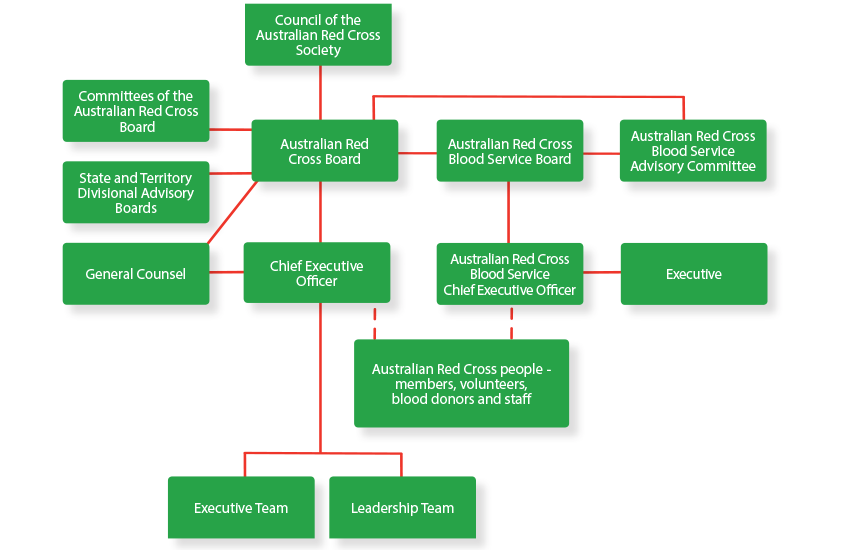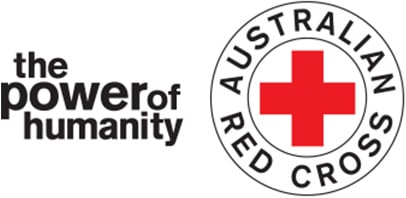Australian Red Cross is governed by the Council of the Australian Red Cross Society and the Australian Red Cross Board. The Council’s responsibilities range from receiving reports and financial statements to electing Office Bearers and Additional Board Members.
The Board comprises up to 16 members who together oversee the role of the Chief Executive Officer (CEO). The CEO has responsibility for the day-to-day management of the organisation, and manages the Executive Team, which provides high-level advice to the CEO on key strategic and operational matters.
Our Patron
The Governor-General of Australia, His Excellency General the Honourable Sir Peter Cosgrove AK MC (Retd), is the Patron of the Australian Red Cross Society. This year he supported Red Cross in a number of ways, including presenting the Florence Nightingale Award to four outstanding Australian Red Cross women for their international aid work in nursing. “They’ve been committed to helping the disadvantaged, the displaced and the dispossessed for their entire careers,” the Governor-General said at the Government House ceremony. “This isn’t about a flash-in-the-pan moment of service. This is who they are and what they are.” We thank the Governor-General for his ongoing patronage.
Our governance and management structure

Council of the Australian Red Cross Society
Meeting once a year at the Annual General Meeting, the Council’s responsibilities include receiving reports and financial statements and electing and appointing Board Members. The Council is made up of the President and 53 voting members, including all members of the Australian Red Cross Board, up to six Special Councillors and 32 members elected or appointed by the Divisional Advisory Boards (DABs) of each state and territory, one of whom must be a youth member from each state and territory.
Membership of the Council
- Australian Red Cross Board Members
- Special Councillors: Greg Vickery AO, Winifred Smith AM, Michael Howarth, John Hood, John MacLennan (from December 2015) and Ian Anson (to December 2015).
- Council members appointed or elected by each Divisional Advisory Board:
- ACT Division: Lisa Bell, Robert McLaughlin, David Hatherley and Adrienne Carey
- NSW Division: David Madden, Andrew Horne, Margaret Kiehne and Benjamin Haddad
- NT Division: Foster Stavridis, Kath Phelan, Deven Patel and Lana Sobieralska
- QLD Division: Maureen Farrington, Greg Goebel, Leann Wilson and Daniel Hamilton
- SA Division: Rose Rhodes, Elizabeth Furner, Chris Kwong and Hannah Irving
- TAS Division: Barbara Charlton, Nigel Morrison, Kim Brundle-Lawrence and Damien Williams
- VIC Division: Garry Nolan, Helene Hayes, Lynne Jones and Alison Crowe
- WA Division: Jag Atrie, John Regan, Aisling Blackmore and Alexander McVey
Australian Red Cross Board
The role of the Board is to govern the activities of Australian Red Cross. In doing so, the Board works to ensure that we act in accordance with the Geneva Conventions, International Committee of the Red Cross (ICRC) regulations, the international movement’s protocols, and the fundamental principles of the international Red Cross and Red Crescent movement. It also develops and maintains ethical standards based on a Code of Conduct and Conflict of Interest Policy.
Comprising up to 16 members, the Board includes the President, Deputy President, the Audit and Risk Committee Chair, the Youth Member, the Chair or nominee of each of the eight Divisional Advisory Boards from every state and territory, the Australian Red Cross Blood Service Chair and up to three Additional Board Members. While they are not members of the Board, the Chief Executive Officer, Chief Financial Officer and Secretary attend Board meetings throughout the year.
Our Board Members are volunteers who receive no payment for their services, other than reimbursement for reasonable travel and other expenses incurred through their work for Red Cross. Board Members who also serve on the Australian Red Cross Blood Service Board receive payment from the Blood Service.
Ensuring good governance is in place is a key Board responsibility. This includes overseeing mechanisms to comply with legal requirements and regulations, while safekeeping the ongoing financial viability of Red Cross. The Board monitors and periodically evaluates its own performance and strives to always have a skilled and diverse membership in place. It also establishes and implements a recognition process that acknowledges the efforts of volunteers, members and staff.
The Board met eight times during this financial year, including a full-day strategy meeting. Board members appointed during the financial year undertook a full day of induction training covering all aspects of governance, Red Cross programs and management.
Committees of the Board
There are 13 Red Cross Board Committees, all of which include Board Members. The Board also appoints various other committees including advisory committees and specialist committees which are established for short-term, specific or ad hoc purposes.
The Committees of the Board include:
Audit and Risk Committee: Assists the Board in ensuring that Red Cross meets its essential audit and risk compliance requirements.
Finance Committee: Assists the Board in ensuring that Red Cross meets its essential financial requirements.
Governance Committee: Reviews the governance framework of Red Cross and recommends improvements.
Information Technology Committee: Advised the Board on key decisions relating to major projects to replace our existing IT platform and implement a common set of business processes throughout Australia. The committee was retired this year.
International Committee: Supports and advises the Board in its deliberations on the Society’s international program and its strategy, frameworks, policy and risk.
Members and Volunteers Committee: Provides strategic oversight and advice to the Board on opportunities and challenges for our membership and voluntary services programs; expansion of the membership of the Society and member engagement; and meaningful expansion and enhancement of voluntary service.
Migration Programs Advisory Committee: Makes recommendations to the Board regarding Red Cross programs dealing with the impact of migration.
National Awards Committee: Approves nominations for awards and makes recommendations for ways to acknowledge the efforts of Red Cross people.
National Emergency Services Advisory Committee: Provides strategic advice to the Board on emergency services programs undertaken by Red Cross.
National Youth Advisory Committee: Advises the Board and consults on youth policies and programs, including youth engagement and leadership opportunities.
Nominations and Remuneration Committee: Supports and advises the Board regarding appointment of Board Members, succession planning, remuneration and employment, induction, training and education programs.
Services Committee: Guides and monitors the progress of Red Cross services and the activities of their members and volunteers.
Australian Red Cross Blood Service (ARCBS) Advisory Committee: Provides independent advice to the Board and to the ARCBS Board of Management on all technical and safety issues. Ensures the highest standards of medical and scientific practice and product safety are met.
Australian Red Cross Blood Service Board
The Australian Red Cross Blood Service is an operational arm of the Australian Red Cross Society. Its Board reports to the Australian Red Cross Board, which has overall responsibility and appoints all non-executive Board Members. The Blood Service Board, which has general oversight of the management of the Blood Service, comprises eight non-executive members who oversee the strategic direction, financial and operational activities, and risk management of the Blood Service. Australian Red Cross’ Deputy President and Chief Financial Officer are both Blood Service Board members.
Divisional Advisory Boards
The Divisional Advisory Boards have a number of functions under the Rules and the Divisional Regulations, in connection with their advisory, divisional governance, promotion and communications roles.
General Counsel
Headed by General Counsel Bruce Moore, the Legal and Policy Unit provides independent in-house legal advice and representation on legal aspects of policy, operational and governance matters. It also coordinates the provision of support by external legal advisers.

